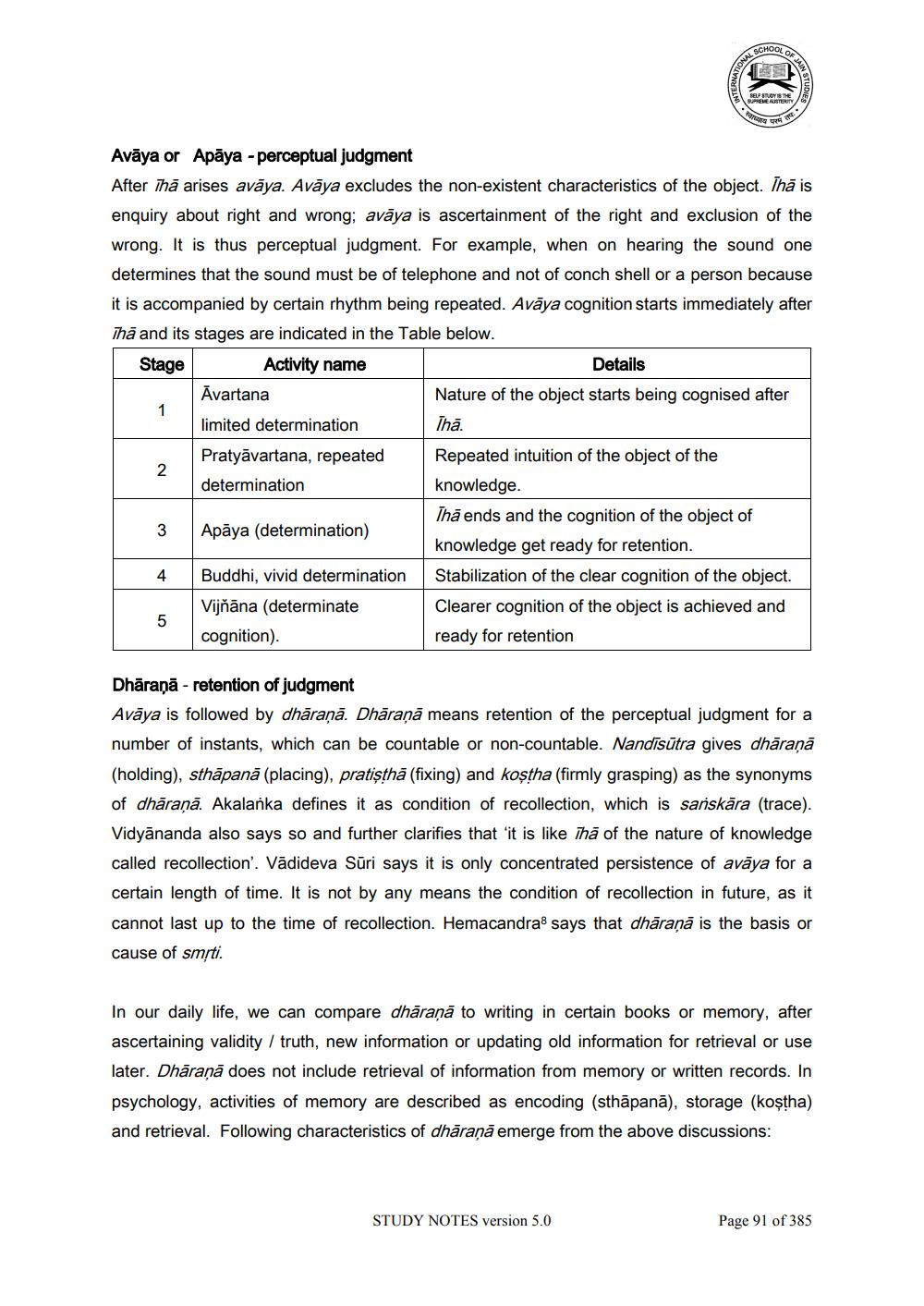________________
1
2
3
4
Avaya or Apāya - perceptual judgment
After Thā arises avāya. Avaya excludes the non-existent characteristics of the object. Tha is enquiry about right and wrong; avaya is ascertainment of the right and exclusion of the wrong. It is thus perceptual judgment. For example, when on hearing the sound one determines that the sound must be of telephone and not of conch shell or a person because it is accompanied by certain rhythm being repeated. Avaya cognition starts immediately after Thā and its stages are indicated in the Table below.
Stage
Activity name
5
Avartana
limited determination
Pratyavartana, repeated determination
Apaya (determination)
Buddhi, vivid determination
Vijñāna (determinate cognition).
INTERNATION
SCHOOL
OF
CKI
SELF STUDY IS THE SUPREME AUSTERITY
स्वाध्याय
STUDY NOTES version 5.0
Details
Nature of the object starts being cognised after Tha
Repeated intuition of the object of the
knowledge.
Tha ends and the cognition of the object of knowledge get ready for retention.
Stabilization of the clear cognition of the object. Clearer cognition of the object is achieved and ready for retention
Dhārană - retention of judgment
Avaya is followed by dhāraṇā. Dhāraṇā means retention of the perceptual judgment for a number of instants, which can be countable or non-countable. Nandisūtra gives dhāraṇā (holding), sthapana (placing), pratistha (fixing) and kostha (firmly grasping) as the synonyms of dhāraṇā. Akalanka defines it as condition of recollection, which is sariskāra (trace). Vidyānanda also says so and further clarifies that 'it is like Tha of the nature of knowledge called recollection'. Vādideva Sūri says it is only concentrated persistence of avaya for a certain length of time. It is not by any means the condition of recollection in future, as it cannot last up to the time of recollection. Hemacandra says that dhāraṇā is the basis or cause of smrti.
In our daily life, we can compare dhāraṇā to writing in certain books or memory, after ascertaining validity / truth, new information or updating old information for retrieval or use later. Dhāraṇā does not include retrieval of information from memory or written records. In psychology, activities of memory are described as encoding (sthāpanā), storage (kostha) and retrieval. Following characteristics of dhāraṇā emerge from the above discussions:
Page 91 of 385




